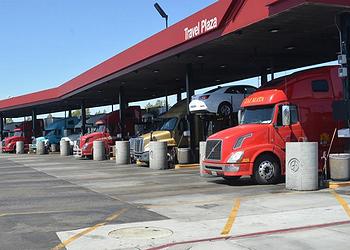
OAKLAND, California, October 28, 2016 (ENS) – U.S. imports of crude oil from South America’s Amazon rainforest are driving the expansion of oil operations into some of the most pristine regions, devastating unique biodiversity and indigenous peoples, poisoning U.S. refinery communities, and changing the global climate, finds a new report by the nonprofit Amazon Watch.
Titled “From Well to Wheel: The Social, Environmental and Climate Costs of Amazon Crude,” the report reveals for the first time oil’s damaging impacts on both North and South America.

In tandem with this report, Amazon Watch has launched a new campaign, “End Amazon Crude.” The group is calling on U.S.-based refineries to stop processing oil from the Amazon, and calling on some of the largest U.S. companies to stop creating demand for Amazon crude.
While overall U.S. crude imports are in decline, U.S. imports of oil from the Amazon have risen in recent years, and the United States now imports more Amazon crude oil than any other country.
California’s refineries are handle more of this oil than refineries elsewhere, processing an average of 170,978 barrels of Amazon crude every day.
This amounts to roughly 60 percent of the total export of Amazon crude from Ecuador, Peru, and Colombia, and 74 percent of all the Amazon crude exports that enter the United States, finds the report.
The Borealis Centre for Environmental and Trade Research, based in British Columbia, Canada, created the initial report on U.S. refineries purchasing Amazon crude.
Borealis reviewed concession and field maps from government and industry sources as well as public company websites to determine the geographic origins of crude streams.
Then the research group analyzed government import/export and shipping data to determine which crude streams are exported. This data was then cross-referenced with U.S. Energy Information Administration data to derive the volumes of Amazon crude oil received by U.S. refineries in 2015 from Colombia, Ecuador, and Peru.
“All commercial and public fleets in California – and many across the U.S. – that buy bulk diesel are using fuel that is at least partially derived from Amazon crude,” explained Adam Zuckerman, Amazon Watch’s End Amazon Crude campaign manager.
“Therefore, virtually every company, city, and university in California and around the country contributes to the destruction of the Amazon rainforest,” said Zuckerman.
Drilling for oil in the Amazon has a triple carbon impact, the report finds – the burning of the oil, the emissions released when cutting down the rainforest, and the destruction of the world’s largest carbon sink.
The Amazon rainforest regulates global weather, contains one-fifth of the world’s flowing fresh water, and produces one-fifth of our oxygen. Just one hectare of the Amazon contains more endemic tree species than all of the United States and Canada combined.
Deforestation in the Amazon directly contributes to the current drought crippling California’s agriculture and leading to widespread wildfires.
In Ecuador, environmental advocate Esperanza Martínez, president of the Ecuadorian NGO Acción Ecologica, laments, “The crude oil that arrives in the U.S. from Ecuador now carries with it a wave of disasters even greater than previous oil drilling history in the country, since drilling has begun in the Yasuní National Park. Yasuní is home to indigenous communities in voluntary isolation and forests full of immense biodiversity.”
Oil operations have toxic impacts on the health of indigenous peoples. Amazon Watch Executive Director Leila Salazar-López mentions one oil-producing region of the Peruvian Amazon where 98 percent of children in indigenous communities have dangerously high levels of toxic metals in their blood.
“For those children, their communities, and our planet, we must end Amazon crude,” she said.

“Our demand for Amazon crude is literally driving the expansion of the Amazon oil frontier and is putting millions of acres of indigenous territory and pristine rainforest on the chopping block,” said Salazar-López. “Breaking free from oil dependence and keeping remaining fossil fuels in the ground is an urgent, collective endeavor, and the life-giving Amazon rainforest must be one of the first places we start.”
The report finds that every large public and private vehicle fleet in California uses diesel that is at least partly derived from Amazon crude, as do many fleets elsewhere.
Environmentalists believe it’s now time to put an end to fueling our vehicles with petroleum.
Michael Brune, executive director of the nonprofit Sierra Club, said, “Scientific research continues to tell us that we must keep dirty fuels in the ground and continue the transition to 100 percent clean energy if we want to preserve our communities, protect the health of our families, and tackle the climate crisis.”
“Putting an end to the destructive use of Amazon crude is a crucial first step in meeting that challenge,” said Brune.
Bill McKibben of 350.org, another nonprofit, agrees. “If you needed another reason why the time is now to stand up to the oil companies, this remarkable report provides it. Ripping apart the Amazon rainforest and indigenous lives rubs salt in the deep climate wound our fossil fuel habit has created.”
Copyright Environment News Service (ENS) 2016. All rights reserved.
© 2016, Environment News Service. All rights reserved. Content may be quoted only with proper attribution and a direct link to the original article. Full reproduction is prohibited.
